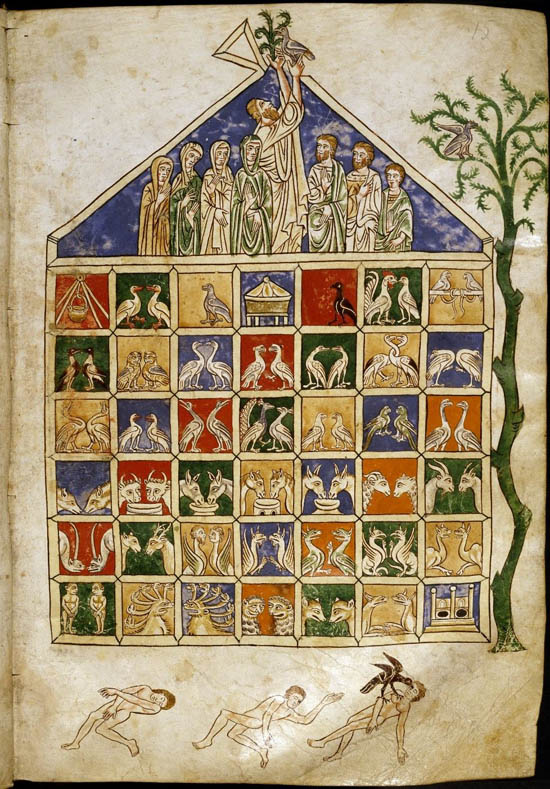
Depictions of Noah’s ark are used to show those who have escaped. Only the righteous man and his house, as well as the gene pool collected with them, two of each animal of the earth. From medieval manuscripts through Renaissance oil paintings to magnificent Baroque frescoes, it is them who we see, in an endless line to board, or already on the ark, proclaiming the richness of creation, the caring greatness of God, and the glory of the righteous. And we can feel relief and give thanks for God’s justice, because if we are looking at this painting, then our ancestors were necessarily among the few survivors.
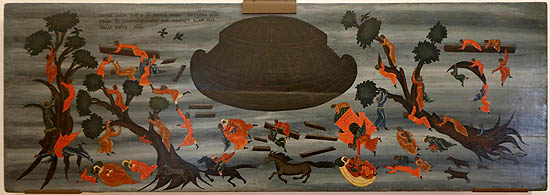 Noah’s ark. Suzdal, icon exposition of the Savior and St. Euthymius Monastery. The Church Slavonic inscription to the left of the ark:
Noah’s ark. Suzdal, icon exposition of the Savior and St. Euthymius Monastery. The Church Slavonic inscription to the left of the ark: “The Flood happened in the 601st year of Noah’s life, and, counting from Adam, in the 2243rd year, on the day of Apostle Kesar. And Noah spent a whole year in the ark. He lef it in the year of 2244.” Thanks to József Attila Balázsi for the transcription and translation, and to László Holler for the intermediation.
“The Flood happened in the 601st year of Noah’s life, and, counting from Adam, in the 2243rd year, on the day of Apostle Kesar. And Noah spent a whole year in the ark. He lef it in the year of 2244.” Thanks to József Attila Balázsi for the transcription and translation, and to László Holler for the intermediation.However, in an early 19th-century icon from the collection of the Savior and St. Euthymius Monastery in Suzdal, we see things from a different perspective. From the perspective of those who perished. Here, the ark is floating in the middle of the picture as a dark, closed object, a flying saucer refusing all communication, as a reminder that there are some who escaped, but we, who remain here, know nothing of their fate.
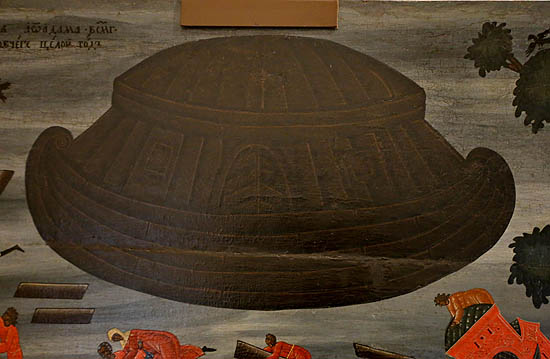
Our destiny, on the other hand, is this: people and animals struggling in various forms and phases of mortal agony in the middle of a roaring flood that uproots trees, painted one by one in cruel detail, in the brightly colored clothes, the beards and hair styles usual in icons, but with unusual, hasty, fleeing and then slackening-to-death postures, as if the flood had washed a well-arranged traditional icon painting apart into its elements.

Some still cling to something: loose beams, overturned boats, uprooted trees, or just another’s feet to drown together as a living chain. Some try to escape on horseback, and the galloping pose of the horse and the floating cloak for a moment gives the deceptive appearance that they might have even succeeded. Some are surprised by the water in their sleep, and, embracing their little children, they sink together. Some try to save their children and some try to survive by leaving them behind. Some, not even a few, try to rescue others at the edge of the vortex, refuting that only the wicked perish in the deluge. Some go to their death in a last amorous embrace.

And the animals that try the hardest, though now they truly “run to eternity like waters run”, even though, in a rebuke to the words of Rilke, it is written on their faces that this time they see death before them rather than God, who has locked himself in the ark together with their surviving kind, and has become inaccessible to them in their most personal moment, the moment of death.

History is written by the winners. The survivors. Those who come out of the ark, who return from the lagers, who emigrated in time. They paint the pictures which thus always depict the escape route. There is no one to report on the destruction without escape, the ultimate hopelessness of Pompeii, Atlantis, the gas chamber, the locked church set on fire, the death march of Anatolia, Brünn, Kazakhstan.
It can only be imagined in advance and painted as vividly as one can imagine. That whoever can, might escape in time. And that after that, something might also be a reminder of us who were left behind.
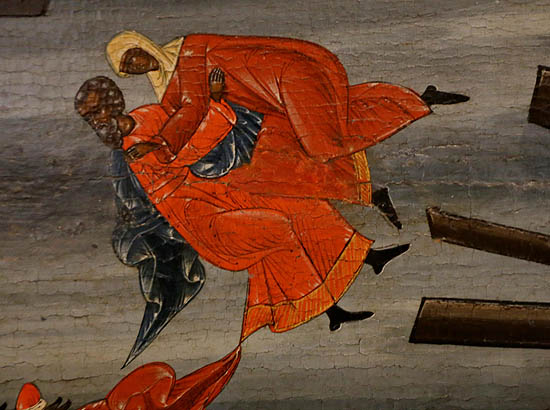
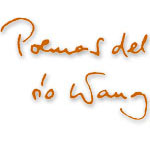




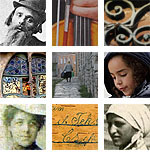
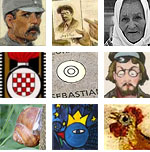
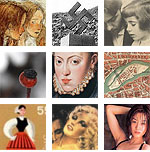

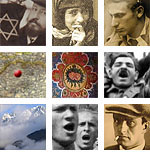

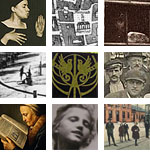
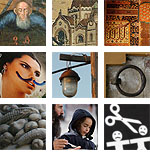
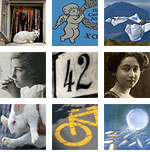
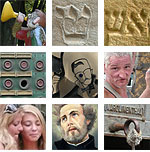
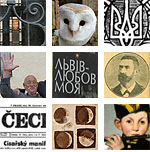

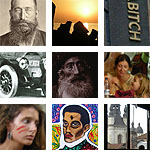
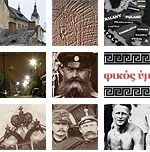

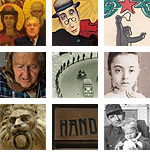
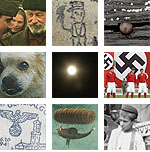
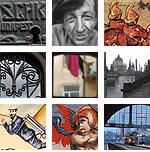
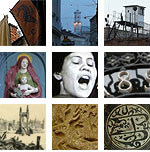
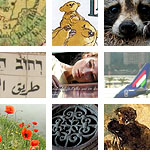
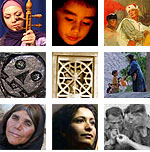
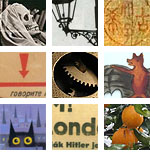
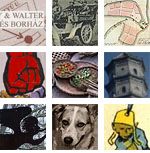
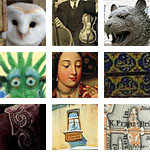
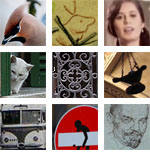
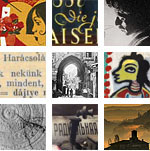
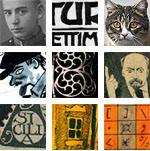
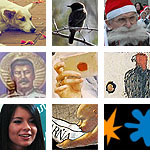
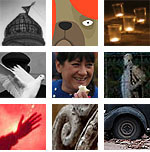
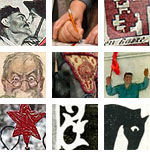
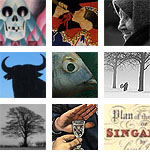
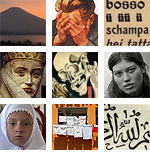
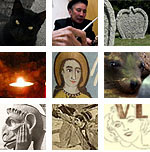
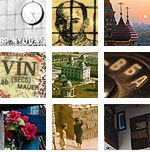
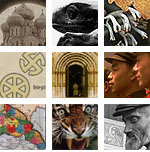
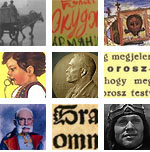
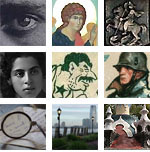

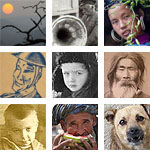
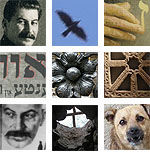
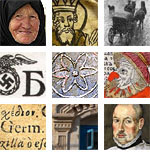
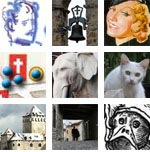
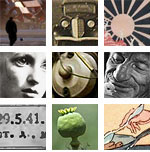
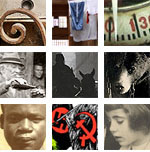
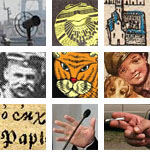
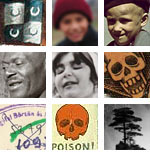
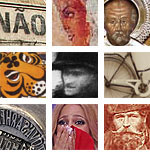
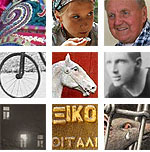
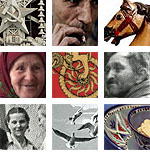
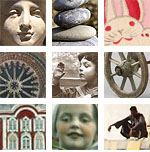


1 comentario:
What a great post -- I'm not sure I've ever given a thought to those who missed the Ark!
Publicar un comentario